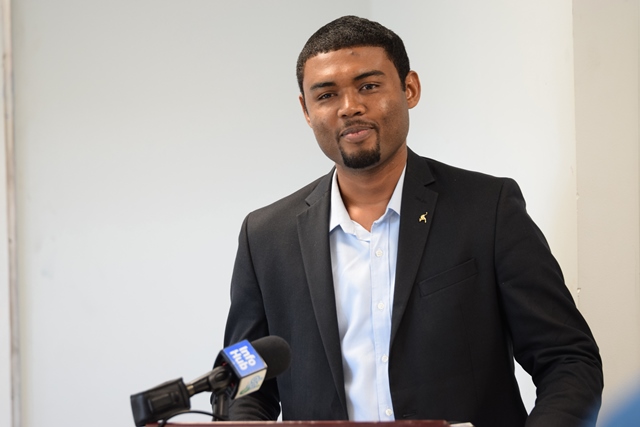
The University of Guyana (UG) today launched a refrigerant management and equipment presentation course that teaches new and emerging technologies to replace chemicals that are harmful to the atmosphere.

Hydrochlorofluorocarbon (HCFC) is the name of the chemicals found in refrigeration and air conditioning. It is also very dangerous to the earth’s ozone layer.
The 8-10 weeks course, which will be facilitated through UG’s Faculty of Technology, is part of Guyana’s efforts to phase out the use of HCFCs in adherence to the Montreal Protocol on Substances that Deplete the Ozone Layer. Guyana ratified the Protocol in August, 1993.

Acting Chief Hydrometrological Officer, Garvin Cummings, noted that the course is critical to the success of the phase-out programme.
“A critical element is the training of personnel on issues related to the phase-out of ozone-depleting substances [and] on new and emerging technologies to replace the substances and technologies that are currently being phased out,” Cummings explained.
The refrigerant management course is a collaboration between the Ministry of Agriculture’s Hydrometeorological Services, UG and the United Nations Development Programme (UNDP).
Vishal Persaud, who heads up the Department of Mechanical Engineering at the University, noted that the certificate programme targets students in electrical and mechanical engineering and industry professionals.
“The programme is designed to cover a variety of topics: from current refrigerant use to the different types of blends, to their environmental impacts, and alternatives to the HCFCs that were used in the past,” Persaud explained.
The initiative is an important milestone for the HCFC phase-out management plan,” UNDP Resident Representative, Mikiko Tanaka said.
“Recognition should be given to the University of Guyana for taking the steps to incorporate this training into its curriculum,” she added.
Support for the project was provided in part by the Multilateral Fund for the Implementation of the Montreal Protocol, UNDP, UN Environment and the Ministry of Agriculture.
The Hydrometerological Services, through the National Ozone Action Unit, is leading Guyana’s efforts to phase out HCFCs.
Guyana’s commitment to sustainable development and environmental protection has been underscored through a number of projects, programmes and policy initiatives, the most recent being the Green State Development Strategy Framework.
























